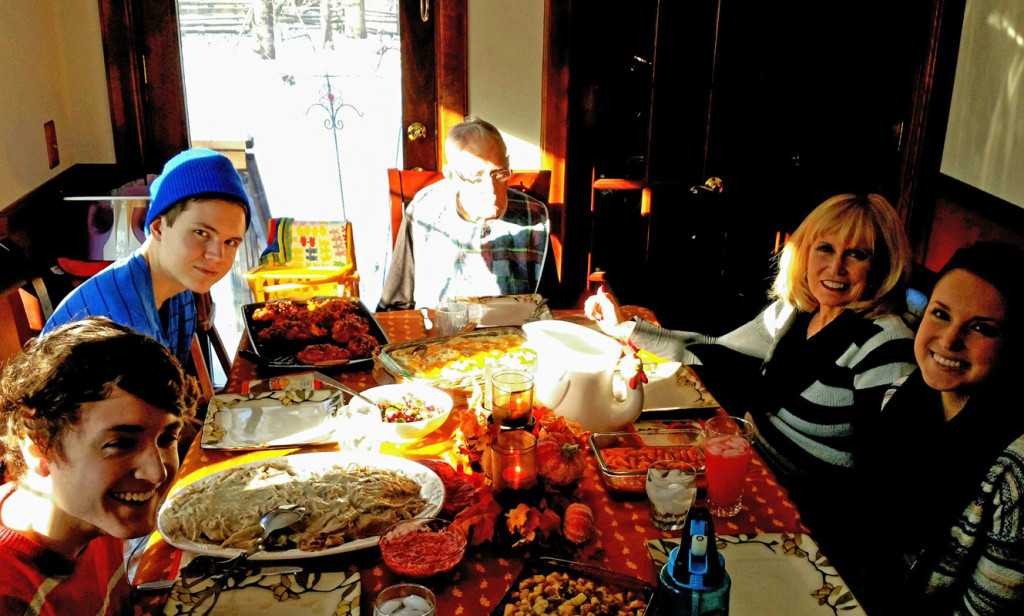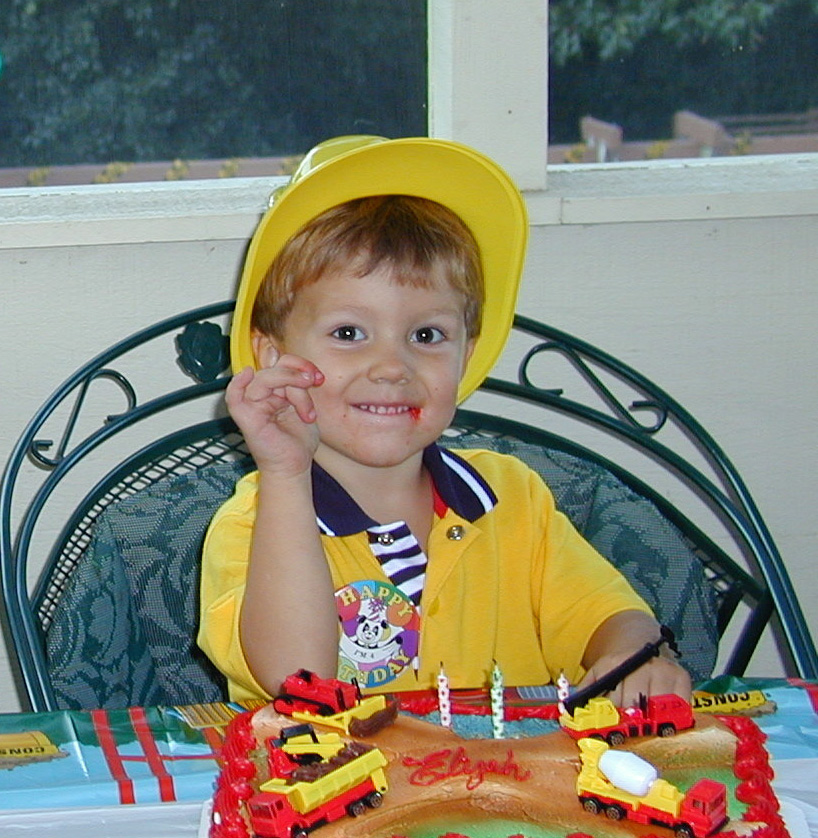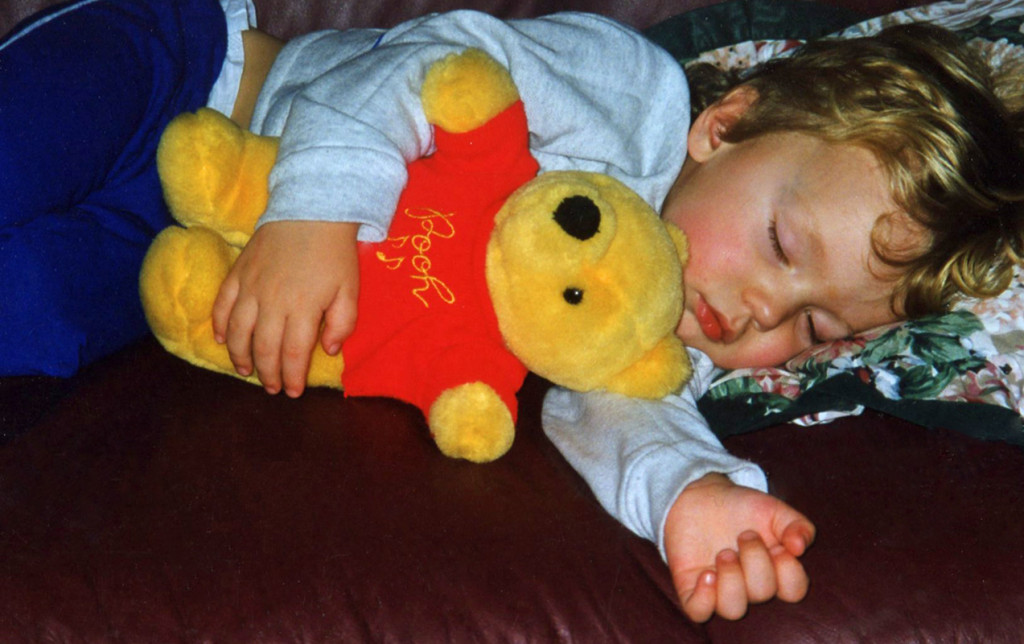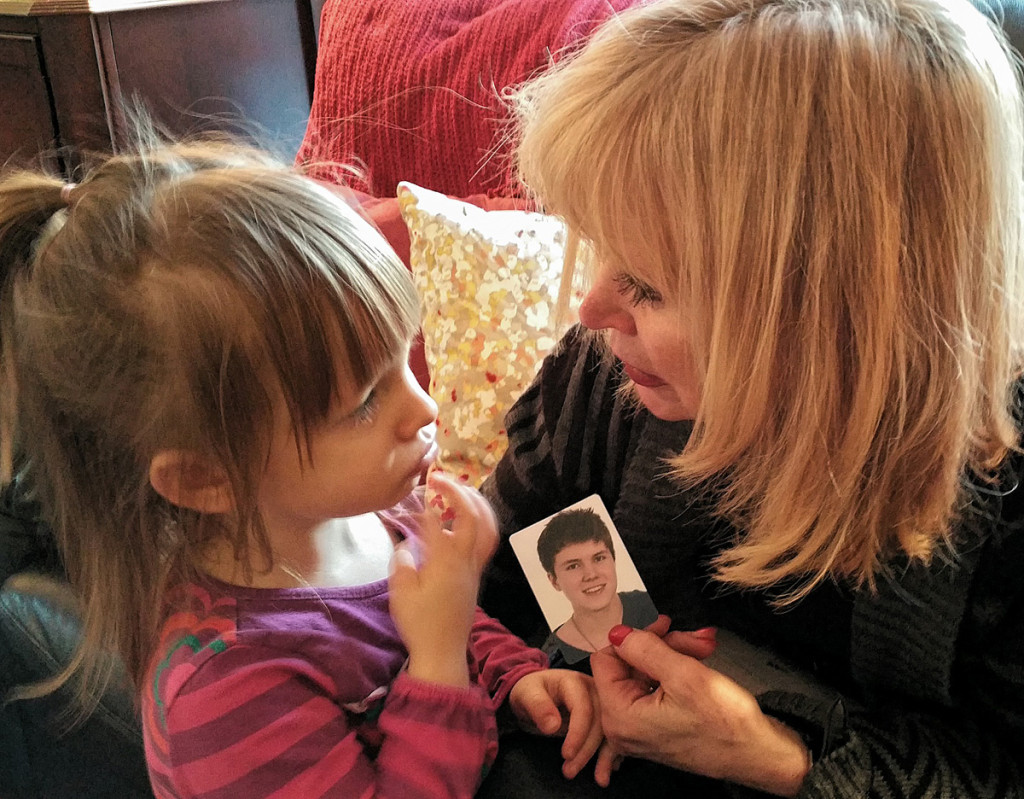This is the last picture I took of Elijah. We were having a small family gathering for our Thanksgiving meal, and I thought I should grab a quick picture. I was probably more interested in photographing the food that I had cooked, and I didn’t even take time to make sure the lighting captured everyone properly. As it turns out, Elijah was the only one perfectly visible.
You would think that I might have cherished this picture from the moment we lost Elijah. By the end of the next day, he was in heaven. But I had forgotten until this week that I had even taken the picture.
We won’t see Elijah again until we gather together for a great feast in heavenly splendor. In Revelation 19:9 the angel said to John, “Write this: Blessed are those who are invited to the wedding supper of the Lamb!” And he added, “These are the true words of God.”
There are three important things that come to mind when I see this picture. First, I remember that Elijah was the last one to the table. He was in the office at his computer through the door on the right. He insisted on spending time online with some of the friends that he was leading to the Lord. He asked me if he should tell them that he would take a break until Monday, but he felt an urgency even on Thanksgiving Day to mentor them.
Second, we were all thrilled at this meal to hear from Elijah and Isaiah the answer to a question Melanie asked. Melanie’s tradition at Thanksgiving has been to ask the family members, “What are you most thankful for?” Usually the kids all sigh and roll their eyes, but they answer out of respect for their mom. On this particular day Elijah and Isaiah each responded that they were most thankful for God’s love and for knowing the Lord. This was the first Thanksgiving that we had ever heard them say that. My immediate comment was, “You boys don’t know how long we have waited to hear that from you two!”
Lastly, this picture sends a message to all of us: Cherish your family moments together. If your family is gathering this coming weekend to celebrate Passover or Easter, be generous with your hugs. Give extra words of encouragement and blessing and love. Laugh with each other.
And take lots of pictures.
“Be very careful, then, how you live–not as unwise but as wise, making the most of every opportunity, because the days are evil.” (Ephesians 5:15-16).
Please ‘like’ and ‘share’ this post as you find it helpful and inspiring. Thank you.
-Ken Buchanan












Recent Comments